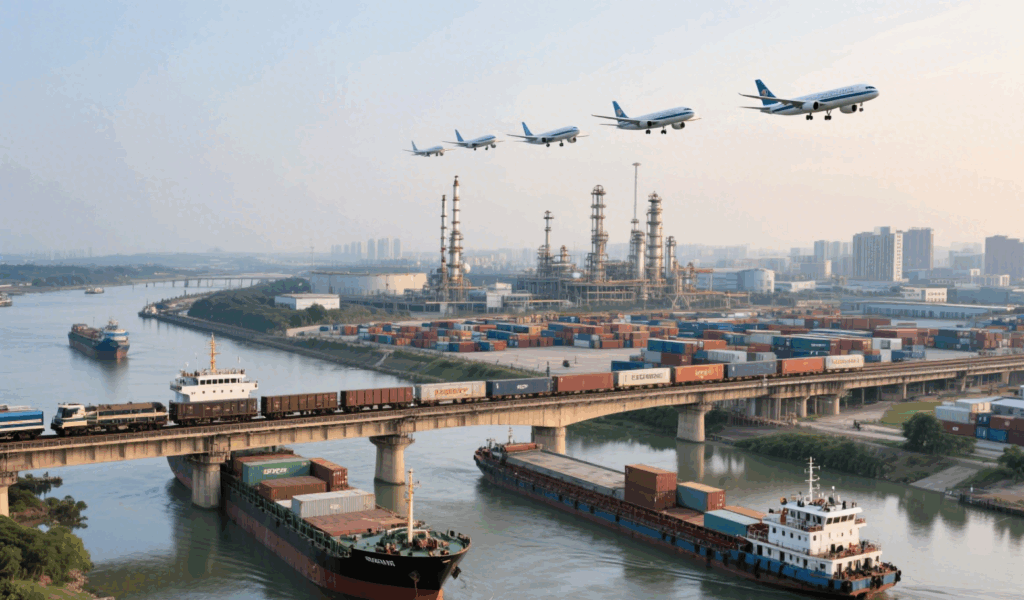Working with a China agent is one of the most effective ways to simplify sourcing, reduce shipping costs, and manage imports. Businesses worldwide rely on trusted agents in China to connect them with reliable factories, negotiate better terms, and handle logistics. Whether you are importing electronics, textiles, or machinery, a China agent can help streamline your supply chain and save significant time and money.
In this article, we’ll explore what a China agent is, why you need one, how they work with shipping services, cost-saving strategies, real-world examples, and answers to frequently asked questions.
1.What is a China Agent?
A China agent (sometimes called a sourcing agent) is a professional or company based in China that represents overseas buyers. Their core responsibilities include:
- Identifying qualified manufacturers and suppliers.
- Negotiating prices and contracts.
- Conducting factory audits and quality inspections.
- Coordinating shipping from China via air, sea, or courier.
- Handling customs clearance and documentation.
In short, a China agent acts as your trusted partner inside China, ensuring smooth trade while protecting you from risks such as fraud, poor quality, or shipping delays.
2. Why Work With a China Agent?
Key Benefits:
- Local Expertise: Agents know the Chinese market, factory locations, and export regulations.
- Reduced Risk: They verify suppliers and perform quality checks.
- Cost Savings: Through negotiation and consolidated shipping, they lower overall expenses.
- Time Efficiency: They handle sourcing, logistics, and customs clearance.
- Better Shipping Management: Experienced agents optimize air cargo, sea freight, and courier options to reduce delays.
3. Shipping Methods Available Through a China Agent
A good agent doesn’t just help you find products—they also help manage logistics. Below is a comparison of the most common shipping methods from China:
| Shipping Method | Transit Time | Best For | Cost Level | Notes |
|---|---|---|---|---|
| Air Freight | 3–7 days | Urgent, high-value goods | High | Ideal for electronics and fashion items. |
| Air Cargo (Consolidated) | 7–12 days | Bulk air shipments | Medium | Cheaper than express, still faster than sea. |
| Sea Freight (FCL/LCL) | 20–40 days | Large, heavy goods | Low | Best for machinery, bulk textiles. |
| Express Courier (DHL, FedEx, UPS) | 3–6 days | Small parcels, samples | Very High | Reliable door-to-door service. |
| Rail Freight (China–Europe only) | 15–25 days | Central Asia & Europe | Medium | Not available for destinations like Australia/USA. |
📌Important: Some people mistakenly think rail freight exists from China to Australia or North America. This is incorrect—agents only use sea or air for those destinations.

4. Related Terms in Trade and Logistics
When dealing with a China agent, you’ll often encounter terms like:
- FOB (Free on Board): Supplier delivers goods to the port.
- DDP (Delivered Duty Paid): All costs, taxes, and customs included.
- MOQ (Minimum Order Quantity): Lowest purchase requirement set by suppliers.
- HS Code: International code used for customs classification.
- Incoterms: Rules defining buyer/seller responsibilities in shipping.
Understanding these terms will help you communicate better with your China agent.
5. Recommendations & How to Avoid Getting Stuck
Tips for Working With a China Agent:
- Verify Credentials: Always check licenses and references.
- Use Contracts: Clearly outline product specs, delivery timelines, and penalties.
- Inspections: Ask for pre-shipment quality checks.
- Consolidation: If buying from multiple suppliers, consolidate cargo into one shipment to save costs.
- Track Shipping: Work with agents who provide real-time logistics tracking.
Mistakes to avoid:
❌ Choosing the cheapest, unverified agent.
❌ Ignoring customs duties in your destination country.
❌ Using the wrong shipping method (e.g., courier for bulk cargo).
6. How to Reduce Costs with a China Agent
Cost-Saving Strategies:
- Bulk Orders: Larger shipments reduce per-unit costs.
- Optimal Shipping Mode: Sea freight is cheapest for volume; air cargo works for urgent shipments.
- Consolidation: Combine shipments from different suppliers.
- Customs Planning: Avoid delays and penalties with proper documentation.
- Negotiate Prices: China agents often get better rates from freight forwarders.
Example:
A China agent can provide an estimated quote:
- Product: 500 LED lamps (1.5kg each)
- Unit Price (Supplier): $4.50
- Air Cargo Shipping: $3.20/kg × 750kg = $2,400
- Total Cost: $4.50 × 500 + $2,400 = $4,650
By consolidating with another buyer’s order, the same shipment could cost 20% less.
7. Real-World Examples
Example 1: China to USA – Electronics Import
- Item: 1,000 smartphones
- Unit Price: $95
- Method: Air freight, 5 days
- Shipping Cost: $6,500
- Route: Shenzhen → Los Angeles
- Total Landed Cost: $101,500
Example 2: China to Germany – Textile Import
- Item: 5,000 T-shirts
- Unit Price: $2.20
- Method: Sea freight (LCL), 32 days
- Shipping Cost: $3,200
- Route: Ningbo → Hamburg
- Total Landed Cost: $14,200
8.Conclusion
A China agent is essential for importers seeking reliable suppliers, transparent logistics, and reduced shipping costs. By managing sourcing, quality, and freight forwarding, a China agent simplifies international trade. With proper verification, smart cost reduction, and optimized shipping methods, businesses can confidently expand their operations with the support of an experienced agent.
Request a Quote
Need a tailored solution for your shipping from China?
Let TJ China Freight Forwarder assist you with reliable, cost-effective service.
FAQ:
Q1.How do I choose the right China agent?
Check licenses, client reviews, and experience in your industry.
Q2.What is the difference between a China agent and a freight forwarder?
An agent handles sourcing and supplier communication; a freight forwarder focuses only on shipping.
Q3Which industries benefit most from China agents?
Electronics, textiles, machinery, and household goods.
Q4.How can a China agent help with customs clearance?
They prepare HS codes, documents, and liaise with customs brokers.
Q5.What payment terms do China agents usually accept?
Most prefer wire transfers, some accept PayPal for smaller deals.

